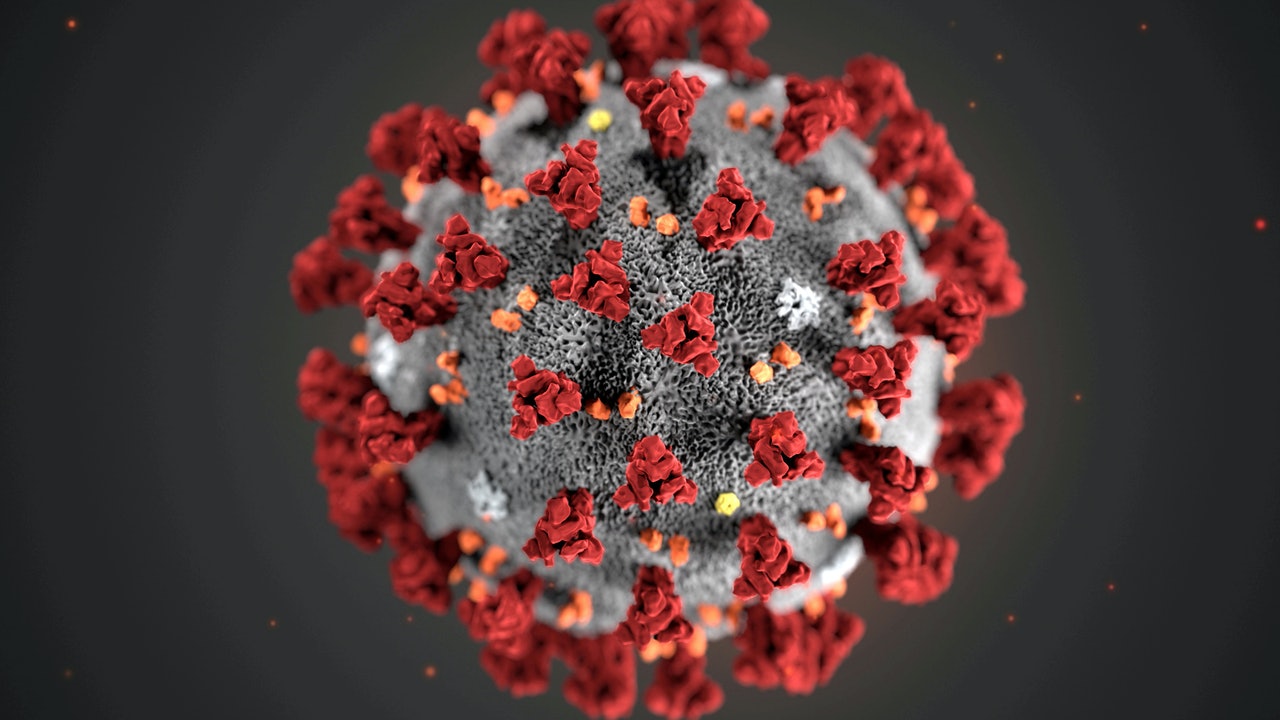Instant International
Written by: Xu Yi'an, Hong Yilin
2021-06-21 00:06
Last update date: 2021-06-21 00:11
The World Health Organization (WHO) said on June 18 that Delta, a variant strain of the novel coronavirus pneumonia (COVID-19) originally discovered in India, will be the main variant strain in the world.
WHO Chief Scientist Soumya Swaminathan said at a press conference in Geneva, Switzerland that day: "Due to increased transmission capacity, the mutant virus Delta will soon become the world's major mutant virus strain." WHO Regional Office for Europe Director Hans Kluge said the virus will take root in Europe.
Regarding the earliest record of the Delta mutant virus strain, it was first discovered in Maharashtra in October 2020.
It spread throughout India and "exported" to other countries.
The World Health Organization announced on May 10, 2021 that it was listed as a "variant of concern" (VOC).
What is a virus mutation?
Coronavirus will naturally mutate in the process of transmission, which is caused by random and small errors in the virus replication process.
Researchers have found that a new coronavirus will have one or two replication errors every 1 month-these errors are mutations (or mutations).
So far, there have been tens of thousands of mutations in the new coronavirus, but the number of mutations that can really change the viral fitness (viral fitness) is very small.
When the virus accumulates to a certain amount of mutations sufficient to change its fitness, it will form a unique variant.
New crown pneumonia epidemic in Afghanistan: The picture shows a group of people in Kabul waiting to fill up their oxygen cylinders on June 19.
The government said that the domestic oxygen supply became increasingly scarce as the third wave of the epidemic worsened.
(AP)
What is Delta?
The Delta mutant virus strain (hereinafter referred to as Delta) has multiple mutations. Scientists have not yet known the significance of those mutations, but Deepti, a clinical epidemiologist at Queen Mary University of London, UK. Gurdasani said that those mutations allow the virus to bind to human cells and help the virus escape the immune response.
New coronary pneumonia | Headache and runny nose become the most common symptom of British patients or may be related to Indian variants
India variant virus丨Singapore found that Delta is the most popular variant of new coronavirus in China
UK Outbreak丨More than 10,000 people diagnosed in a single day hit a new high since February, Delta variant virus rages
New crown pneumonia|Indian variant virus Delta suspected of hearing loss and gangrene, doctors worried
+3
+3
+3
Difference between Delta and Delta+
The "sublineage" of Delta, sometimes called Delta Plus or AY.1, has appeared.
There are not many cases related to it, but it has a mutation named K417N.
K417N was first discovered in South Africa.
Gurdasani claimed that K417N was alleged to be related to "more evading vaccine efficacy" and "increasing infectivity."
But he also said: "We don't yet know the characteristics of the new variant virus with this specific mutation."
New crown pneumonia in the UK: 90% of the newly confirmed cases of new crown pneumonia in the UK are infected with the Delta variant virus strain.
The picture shows a man waiting at the vaccination center outside the town hall in Bolton, England on June 9.
(AP)
More infectious?
According to data from Public Health England (PHE), the answer is indeed the case.
In more than 90% of the newly confirmed cases in the UK, the patients were infected with Delta.
As of June 9, there have been more than 42,000 Delta cases in the UK.
Between June 2-9, nearly 30,000 Delta cases were added.
According to cases confirmed by PHE, most of the patients infected with Delta were not vaccinated or received only one dose.
The PHE study found that Delta is associated with a 64% increase in the chance of infection in the same family.
This is the result of comparing the chance of infection in the same family caused by the Delta and Alpha variant virus strains (B.1.1.7).
The Alpha mutant virus strain was first discovered in Kent, England.
Brazil's new crown pneumonia epidemic: The “high fever” of the Brazilian epidemic has not retreated. By June 19, there were more than 500,000 deaths. The government's ineffective fight against the epidemic caused public dissatisfaction.
The picture shows a demonstration that broke out in Sao Paulo, Brazil, on June 19th. Some people erected cardboard on the street. The demonstrators designed pictures to make Brazilian President Bolso wear a prison shirt to symbolize that he is a sinner.
(AP)
Is the vaccine's effectiveness weakened?
Existing data show that compared with the Alpha variant virus strain, the "Pfizer vaccine" and "AstraZeneca vaccine" are less effective in preventing the admission of patients infected with the Delta variant virus strain.
"Pfizer Vaccine" is jointly developed by the US pharmaceutical company Pfizer and the German biotech company (BioNTech).
"AstraZeneca Vaccine" was jointly developed by AstraZeneca and the University of Oxford.
"Pfizer Vaccine" is made with messenger ribonucleic acid (mRNA) technology.
"AstraZeneca vaccine" is an adenovirus vaccine.
According to the preprint of the PHE study, after 2 doses, the effectiveness of "Pfizer vaccine" against Delta is 6% lower, and the effectiveness of "AstraZeneca vaccine" is 1% lower.
The PHE study pointed out that for symptoms of new coronary pneumonia caused by Delta, the effective rate of "Pfizer vaccine" after the first dose is 36% and 88% after two doses; AstraZeneca vaccine is given one dose After the effective rate is 30%, after 2 doses it is 67%.
Maria Van Kerkhove, WHO's technical director of the epidemic, said that more studies are needed to confirm whether Delta will cause more severe illness.
New crown pneumonia epidemic in the Philippines: The picture shows a medical and health care worker at a mobile injection station in Tagafi on May 21.
(Reuters)
More deadly?
Relevant data are still scarce, and it is difficult to provide an exact answer to this question.
Take the United Kingdom as an example. Between February 1 and June 7, there were 42 deaths. The patients were infected with the Delta variant virus strain during their lifetime. Among them, 23 were not vaccinated, and 7 were vaccinated more than 21 days ago. 12 people received the second dose of vaccine more than 2 weeks ago.
According to PHE, the Delta mutant virus strain is more likely to cause the patient to be admitted to the hospital than the Alpha mutant virus strain (first discovered in the UK).
Gurdasani said that according to British data, such as Delta is more likely to cause patients to be admitted to the hospital, if it is eventually confirmed to be more fatal, it is not surprising.
The medical and scientific communities have not yet confirmed whether the Delta mutant strain of the new coronavirus pneumonia, which is more infectious, is also more deadly.
The picture shows a nurse removed a deceased from new coronary pneumonia in a hospital in San Lorenzo, Paraguay on June 18.
(AP)
New crown pneumonia variant virus India UK news classroom





/cloudfront-eu-central-1.images.arcpublishing.com/prisa/LXJQLIHEEJDHBNVN45ZLQLAMJY.jpg)









